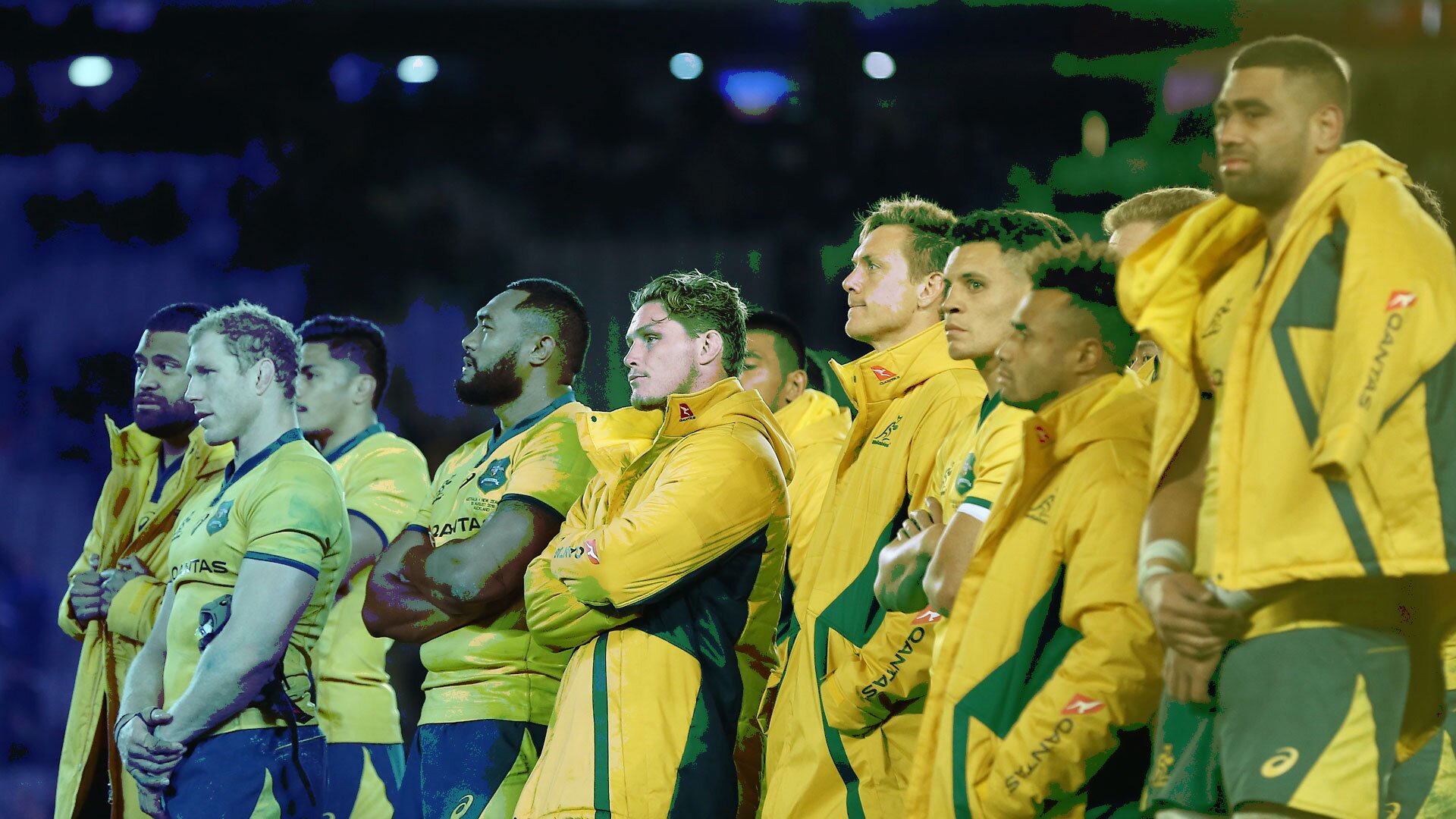A decade of inconsistency and disappointment for Australian rugby

Australian rugby is licking its wounds after a miserable year that drew the curtains on a decade best consigned to the sport’s historic dustbin.
Rugby enters a new 10-year block facing serious challenges to its status as a premier Australian sporting product, the Israel Folau storm of 2019 the latest and most damaging from a collection of off-field blow-ups.
Negative headlines have outnumbered celebratory moments, the last of which came three years ago when the women’s sevens team collected gold at the Rio Olympics.
Men’s results have tailed off although the Wallabies sparked memories of the glorious 1990s when the 2015 side under Michael Cheika defied all predictions and reached the Rugby World Cup final.
Cheika was at the helm when the NSW Waratahs won a maiden Super Rugby crown a year earlier, mirroring the deeds of the 2011 Queensland Reds.
Continue reading below…
Otherwise, Super Rugby was a grim landscape for Australian sides, translating into a struggling Wallabies te am whose form was rarely better than patchy. A winning ratio of just over 50 per cent across the decade was the sixth best among tier-one nations.
Reclaiming the Bledisloe Cup was a task too hard for Robbie Deans, Ewen McKenzie and Cheika, whose Wallabies coaching tenures all ended on low notes.
Turnover king David Pocock was a world-class forward operator but a dearth of x-factor backline players made the sport a hard sell.
Aside from Folau, it’s hard to think of an attacking back that repeatedly got hearts racing, although Will Genia and Quade Cooper were a lethal playmaking pair for a fleeting time.
https://www.instagram.com/p/B5taEspAqm8/
Cooper became as well known for his off-field run-ins, a member of the “three amigos” – alongside Kurtley Beale and James O’Connor – the young Test stars who kept officialdom on their toes.
Honours Board:
– 2011, Queensland Reds win Super Rugby
– 2011, Wallabies win the Tri-Nations.
– 2014, NSW Waratahs win Super Rugby
– 2015, Wallabies win the Rugby Championship
– 2015, Wallabies reach the Rugby World Cup final.
– 2016, Women’s sevens win gold at the Rio Olympics
https://twitter.com/RugbyPass/status/1208922667216064512
Winning percentage (tier-one teams)
New Zealand 86.6%, England 68.3, Ireland 60.8, South Africa 59.8, Wales 55.0, AUSTRALIA 53.7, France 46.9, Scotland 46.6, Argentina 35.6, Italy 23.4.
Best Wallabies XV
Fullback – Israel Folau. Before disappearing in a blaze of controversy, Folau was easily the most devastating attacker to wear green and gold this decade. Kurtley Beale had his moments at the back.
Wingers – Adam Ashley-Cooper and James O’Connor. The lack of quality wide men is highlighted by two players better known for their versatility getting the nod. Of the spe cialists, Drew Mitchell peaked the previous decade and 2019 World Cup star Marika Koroibete left his run too late.
Centres – Tevita Kuridrani and Kurtley Beale. Fielding a settled Wallabies midfield was rare. Kuridrani was strong and reliable while Beale on his day could be a match-winner but he was shunted around the backline.
https://www.instagram.com/p/B5EaeE_ALwD/
Five-eighth – Bernard Foley. Solid and racked up points at a decent rate but only really shone at the 2015 World Cup. Quade Cooper’s flashes of brilliance were too fleeting.
Halfback – Will Genia. The game’s premier No.9 early in his career before tailing off by the end but always one of the team’s most important players. Nick Phipps was an admirable backup.
Back row – David Pocock, Michael Hooper, Scott Fardy. On sheer ability, champion ball scrounger Pocock and the workaholic Hooper are both there, despite criticism their combination created an under-sized pack. The industrious Fardy blended with them best in 2015.
New York has left Mathieu Bastareaud feeling all chilly at new club Rugby United https://t.co/yaYmpvRW8q
— RugbyPass (@RugbyPass) December 20, 2019
Locks – Rob Simmons and James Horwill. Simmons was a model of consistency across the decade. Horwill was promoted to captain, edging him ahead of some worthy candidates.
Props – Sekope Kepu and Scott Sio. Kepu was the most capped Wallaby during the 10 years, playing 107 of the 136 Tests. Sio was a brutal performer in recent seasons, seeing off the claims of James Slipper and Benn Robinson.
Hooker – Stephen Moore (captain). Like so many of the 2015 Rugby World Cup finalists, finds a place in this selection. A tough as nails skipper, complemented by Tatafu Polota-Nau off the bench
– AssociatedPress
IN OTHER NEWS:





































































